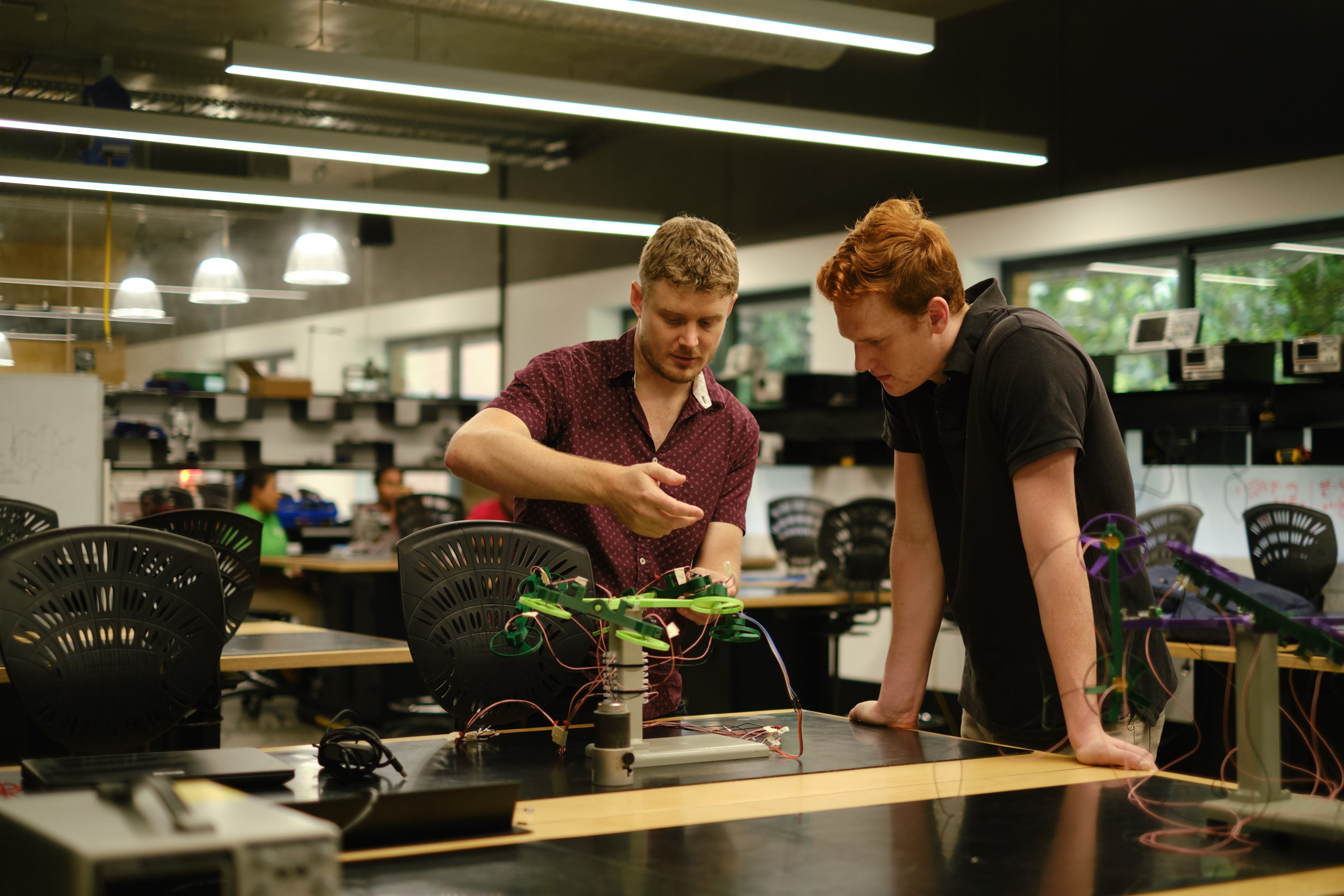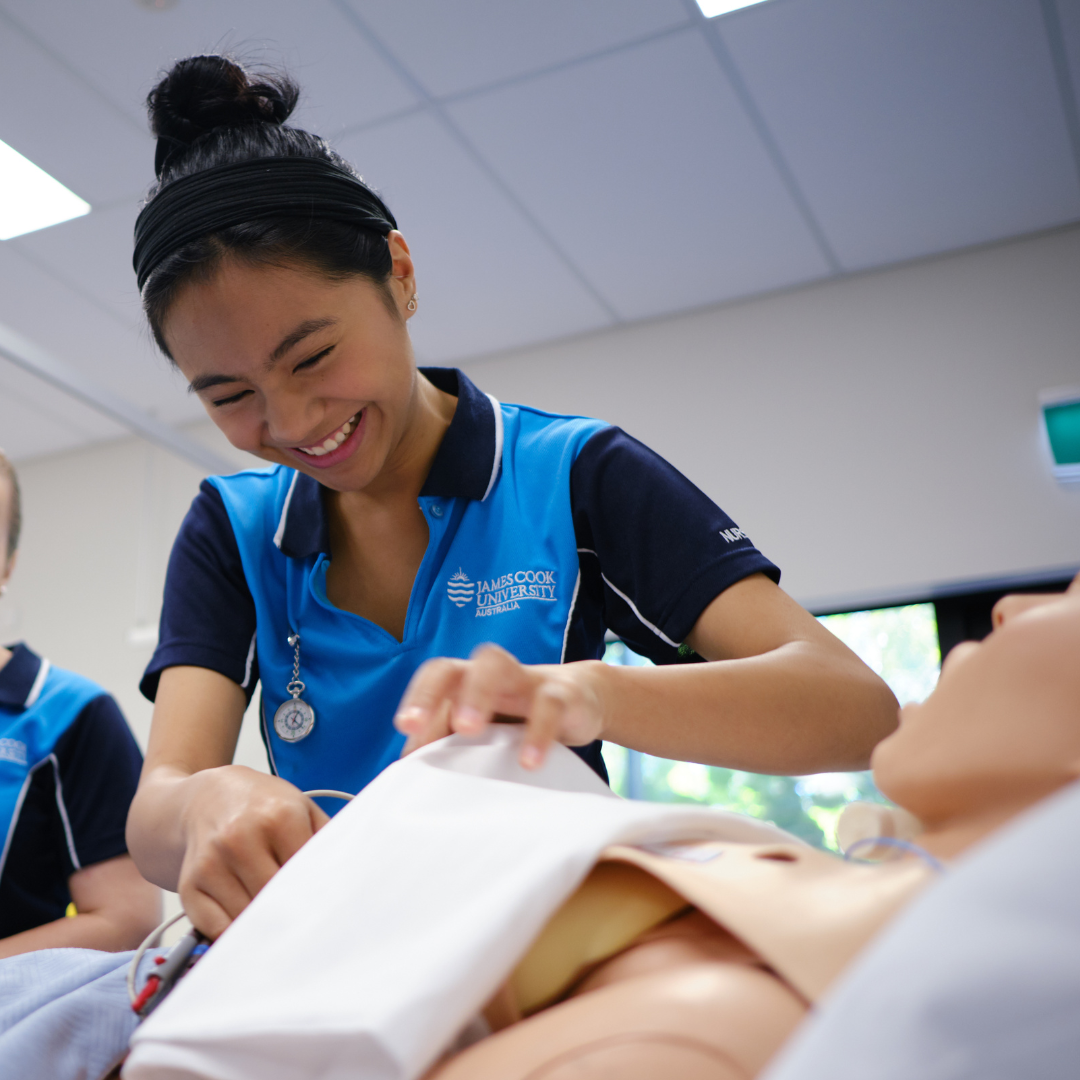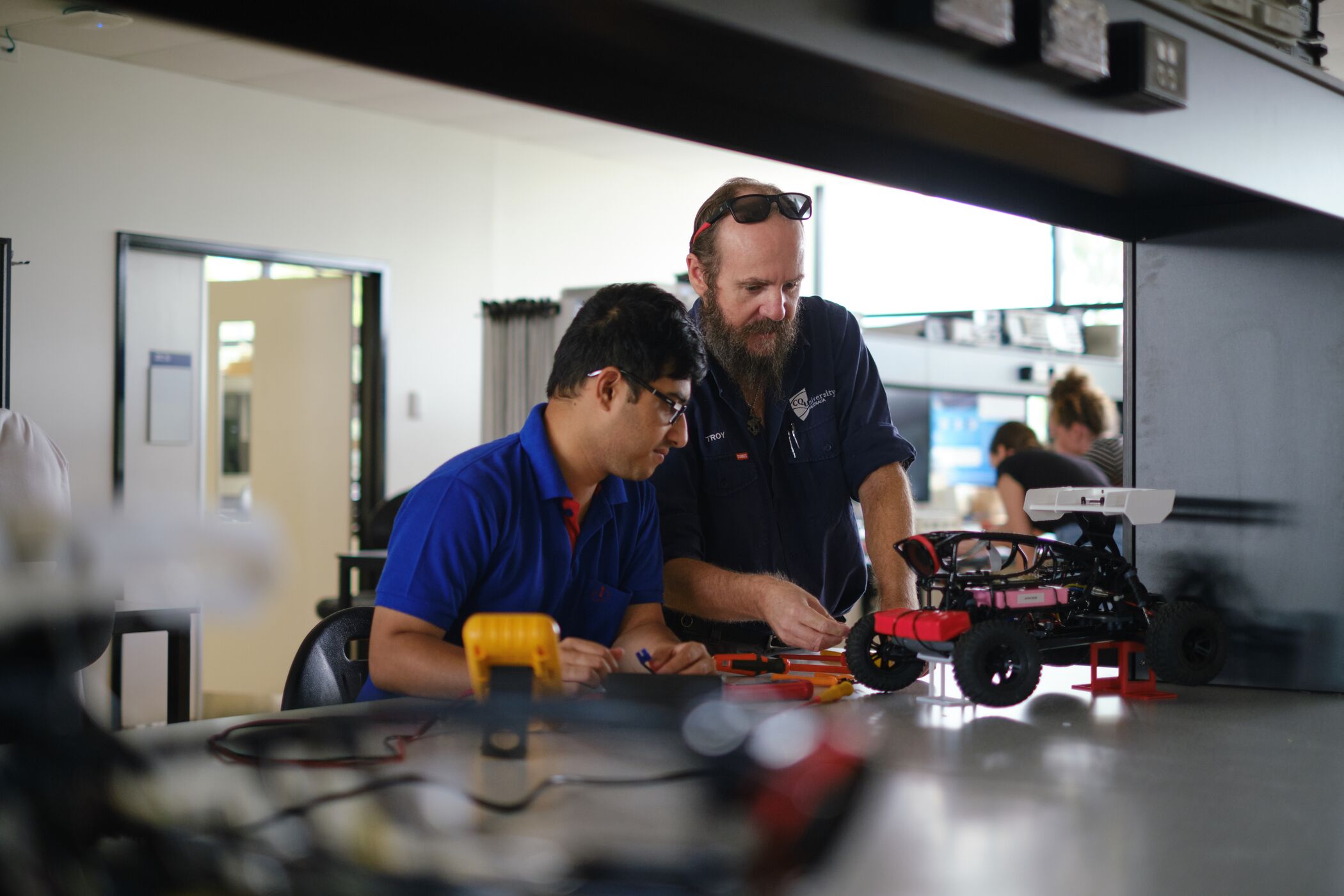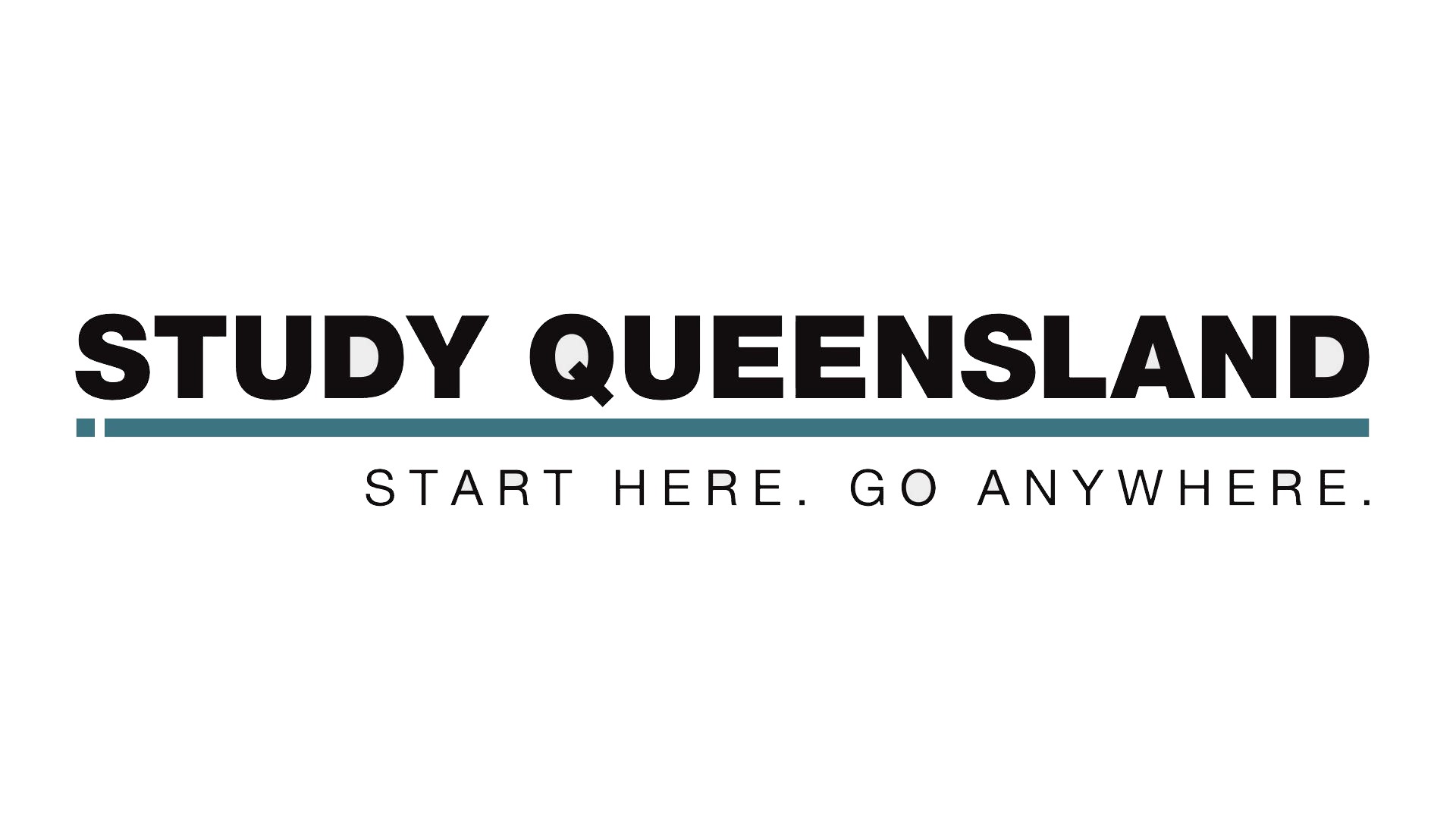Study /
Vocational education and training (VET) in Queensland gives students – both local and international – a variety of practical skills to help them achieve their full potential and advance in their chosen fields. VET Australia offers diverse pathways to employment and further education, with training providers delivering a wide range of industry-relevant courses.
So whether you’re looking to switch to a new career, upgrade your technical and further education skills, or simply prepare for university, a VET qualification in Queensland is an excellent place to start.
What is VET?
Expanded to vocational education and training but more commonly known as “VET”, these are higher education courses that deliver industry-specific skills and knowledge.
VET courses cover lots of hands-on training and are developed in consultation with industry partners – this helps to ensure they always meet current workforce needs. Registered training organisations develop courses in a wide range of fields, including business, healthcare, technology and trades.
Perhaps most importantly, VET qualifications are recognised nationally as accredited courses, which makes them invaluable for getting employed around Australia and these Australian qualifications are generally very well received around the world.
Who offers VET courses in Queensland?
In Queensland, VET courses are offered by TAFE Queensland, private colleges and some universities.
TAFE Queensland offers VET courses covering a huge range of industries. Private colleges often deliver more specialised VET training packages in niche fields. Universities that are part of the VET system tend to work in conjunction with their higher education courses.
Types of VET qualifications
Vocational education qualifications in Queensland aren’t equivalent to a university degree, but they do range from certificates to advanced diplomas. This means you can choose a level of education that matches your career aspirations:
- Certificate I–IV: These qualifications will give you foundational skills and industry-specific knowledge. They can take anywhere from six months to two years to complete.
- Diploma: Diplomas offer further study and more in-depth training. They are meant to prepare students for technical or management roles, and they generally take one to two years to complete.
- Advanced Diploma: These qualifications provide advanced skills and knowledge, and are generally meant for those who have prior learning in this specific area of study. They usually take 18 months to two years.
- English Language Courses: These courses help non-native speakers hit their English language requirements and hone their skills for academic, professional or personal reasons. The length of these courses vary depending on the provider and your existing proficiency with the English language.
VET vs Higher Education
You can expect a VET training provider to focus more on practical, hands-on training that matches up with industry needs, whereas higher education (such as university degrees) is more about theoretical knowledge and research.
VET courses will provide students with the specific skills needed for a particular trade or profession, for example, which makes them very useful for immediate employment. On the other hand, higher education programs delve deeper into theoretical concepts, preparing students for an exciting and successful future career.
The bottom line is that both pathways come with their own benefits, and your final choice should cater to your own career goals and learning style. Many VET providers will help you enter the workforce quickly and with the practical skills to thrive, whereas higher education is more suited to those who are seeking roles that require in-depth theoretical knowledge and research capabilities.
VET as a pathway to university
Australia’s VET sector often serves as a pathway to university – especially for international students. There are many courses, for example, that act as ‘credits’ towards a university course. This means students can equip themselves with practical skills and hands-on experience before pursuing further academic training.
Say you complete a diploma in community services. This could then count towards the first year of a related bachelor's degree. This pathway might be a more flexible and cost-effective pathway to higher education, giving you the ability to build a strong foundation of practical knowledge before transitioning to more advanced theoretical studies. It can also open the door for future academic studies so you can expand your skills.
Why study a VET course?
There are numerous advantages to vocational education, many of which will prepare you for success in your chosen field.
Taught by industry experts
VET courses are taught by professionals with extensive experience in their industries, which means the training is always relevant and up-to-date with current industry standards and practices.
Nationally recognised qualification
Vocational education and training qualifications are nationally recognised around the country. This makes them valuable credentials for employment and further education opportunities anywhere in Australia.
Diverse learning environments
VET study options span across Queensland, from bustling cities like Brisbane, Cairns, Sunshine Coast, and Gold Coast to regional cities like Mackay, Toowoomba, Townsville, and Rockhampton. Each location often boasts a specific industry focus, allowing you to tailor your learning environment to suit your educational goals and lifestyle preferences.
State-of-the-art facilities
Every vocational education and training provider in Queensland will give you access to state-of-the-art learning spaces and equipment, so you can take advantage of emerging technologies and expert teachers to supercharge your learning experience.
Entry requirements
Some vocational courses might require a certain level of education, such as an Australian Year 10 or Year 12 qualification, while others may have no prerequisites or prior study areas. Basic literacy and numeracy tests, however, are required for some courses. For example, TAFE Queensland typically requires a Year 10 qualification for certificate III courses and a Year 12 qualification for certificate IV, diploma and advanced diploma courses.
Make sure you check the equivalent qualifications in your country to determine your eligibility.
How do I apply for VET courses in Queensland?
Applying for VET courses in Queensland is very straightforward. As a prospective student, you can apply directly through the vocational education and training provider’s website or via an education agent.
Make sure you do your research to ensure you meet all the entry requirements and have the necessary documents ready for the application process. For guidance on visas or student accommodation, be sure to check out our Living in Queensland page.






















